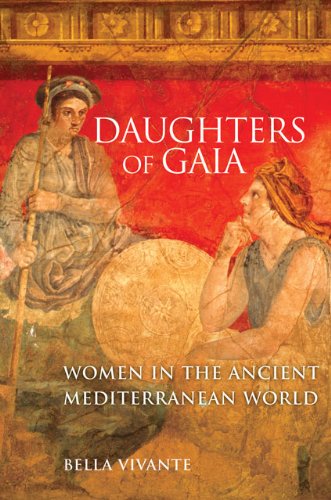Daughters of Gaia: Women in the Ancient Mediterranean World
The study of women in antiquity has already seen a great deal of important scholarship. In this book, the author undertakes a sweeping synthesis in a very small compass. She examines women’s lives in ancient Egypt, Mesopotamia, Greece, and Rome in a time span ranging from the Neolithic to the 5th century AD. The book is organized by topic: goddesses, women’s religious rituals, daily life, health and medicine, the economic bases of women’s lives, women rulers, women warriors, women philosophers, and women poets. The book’s central theme is to ‘accentuate the features that empowered women’. The treatment is necessarily compressed and a feeling of breathless hurry is unavoidable. Still, Vivante manages to convey a great deal of information with clarity.
For this reader, the most interesting chapter is Health and Medicine. Here Vivante draws heavily on the fascinating “Gynecology” of Soranus of Ephesus (who objected to the prevailing theory that the womb wanders like a restless animal). Also enlightening is her discussion of woman philosophers ranging from Pythagoras’ wife to the ‘pagan martyr’ Hypatia, an Alexandrian mathematician who was lynched by a Christian mob. For those wishing to go deeper into the subject, there is a useful bibliography.










